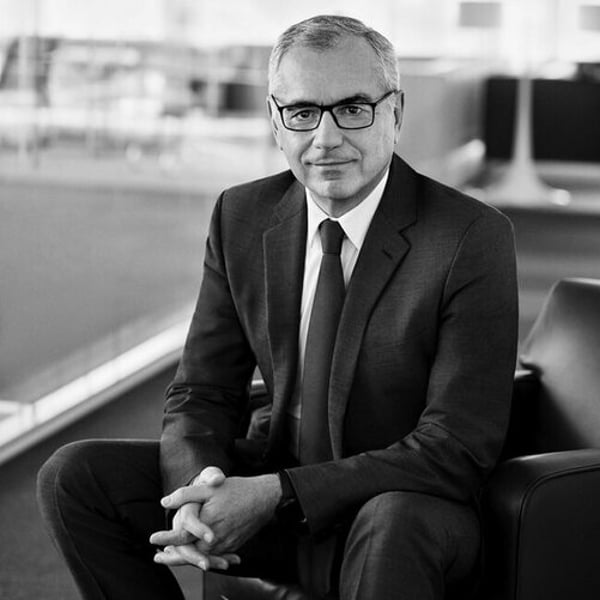By
Europa Press
Translated by
Roberta HERRERA
Published
Oct 21, 2023
Marc Puig, CEO of Puig, has suggested that a potential initial public offering (IPO) of the company could mitigate “challenges” in future generational transitions, which he anticipates will occur within the next decade.
Puig explained that during generational shifts, issues such as difficulties in assuming leadership roles or a waning of enthusiasm can arise, and opening up the company’s ownership to external investors could help mitigate these problems.
In separate interviews with the “Financial Times” and “La Vanguardia”, reported by Europa Press, the executive cautioned that family-owned companies can sometimes gradually lose their market position, “slowly fading into obscurity, with nobody within the company noticing.” In contrast, being accountable to external investors can significantly impact a company’s trajectory.
Nonetheless, he affirmed that an IPO is just one of several options being considered by the company, and no decision has been reached thus far. Furthermore, he underlined that the Puig family would continue to retain the majority of the company’s ownership.
“One option could be to open up the company’s capital, and doing so could encompass private equity investors, long-term shareholders, or even entry into the public stock market,” he noted, emphasizing that maintaining the current situation is also an option.
A forward-looking perspective
Looking to the long term, Puig explained that “leading companies in the luxury and premium beauty world are typically family-controlled,” citing examples like LVMH and L’Oréal, both of which are publicly traded.
He emphasized that luxury brands require a patient, long-term vision, a quality he believes family-run firms offer, while public markets tend to focus on short-term gains, representing a fine equilibrium.
In addition, Puig identified attracting, retaining, and inspiring talent, creativity, and innovation as the company’s “main challenge”. He stressed that Puig competes with companies that are world leaders in their respective domains.
Debt
In terms of financial leverage, the company has increased its indebtedness in recent years due to its inorganic growth strategy. However, Puig clarified that this doesn’t affect their ability to pursue further acquisitions, and the entry of external investors is not a prerequisite for further expansion.
He further stated that their financial strategy remains prudent, indicating that they have “less flexibility today compared to a year or two ago,” though they continue to explore opportunities within the market.
“In our industry, when you have strong, healthy brands like we do, you have a high Ebitda margin, a lot of cash and relatively small capital expenditure,” he said.
At the end of 2022, the group’s debt was 1.6 times the company’s EBITDA, which amounted to 638 million euros. The company’s outlook for this year is to surpass 4 billion euros in revenue, following its 2022 revenue figure of 3.62 billion euros, marking a 40% increase from the previous year.
Puig’s brand portfolio includes renowned names such as Carolina Herrera, Rabanne, Jean Paul Gaultier, Dries Van Noten, Nina Ricci, Byredo, Penhaligon’s, L’Artisan Parfumeur, Kama Ayurveda, Loto del Sur, Charlotte Tilbury, Uriage, Apivita, in addition to licenses for brands like Comme des Garçons Parfums, Christian Louboutin, Benetton, Banderas perfumes, and Adolfo Dominguez, among others.
Copyright © 2023 Europa Press. Está expresamente prohibida la redistribución y la redifusión de todo o parte de los contenidos de esta web sin su previo y expreso consentimiento.







